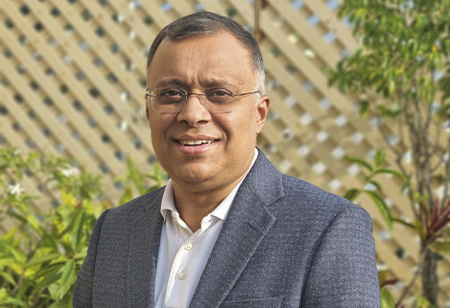
Amit Kavrie, Managing Director of Supreme Group, embodies visionary leadership at India’s largest and most diversified nonwoven company. He guides the company’s strategic direction with innovative and sustainable business practices and has a global perspective enriched by international experiences. Amit’s deep involvement in industry initiatives, including being a core member of ACMA’s committee focusing on xEV & Future Mobility, underscores his commitment to shaping the future of automotive manufacturing and sustainable development. In a recent conversation with the Industry Outlook magazine, Amit shared his valuable insights on how recent tech advancements and innovations are influencing the automotive manufacturing sector today.
The automotive sector is on the cusp of a monumental shift, and we are moving away from traditional approaches to vehicle assembly. We’re already seeing OEMs pivot towards using advanced materials and processes. The future lies in embracing mechanization – replacing human tasks and transforming manufacturing thinking. But it’s not just about machines; it’s about our people adapting, upskilling, and embracing these changes with an open mind.
Materials and material based application innovation is a cornerstone of the automotive industry. It's about aesthetics, performance, and applying global considerations to local contexts. The shift we’re witnessing now, with material innovation, is monumental. It’s time for Indian companies to step up, challenge the status quo, and position themselves alongside global players.
Sustainability is a key pillar of manufacturing, but it’s not without challenges. The demand for "eco-friendly" materials is skyrocketing, not just in our industry but across all manufacturing sectors. This creates a supply gap that we need to address urgently by prioritizing the products and applications for the use of suitable sustainable materials. Enhancing our capacity to process natural materials efficiently is also crucial for sustainable development. Guided by the visionary insights of our esteemed Prime Minister Modi-ji, I advocate for a cohesive and progressive journey spanning from - Farm to Fibre, Fibre to Fabric, Fabric to Function, and Function to Future.
It starts with design – a mature approach to envisioning our products. Implementing automation and digitization in manufacturing processes can drastically optimize costs. By replacing repetitive human tasks with mechanized solutions, we enhance productivity, reduce errors, and ultimately save on manpower and costs. This strategic use of technology is essential to maintain high-quality standards while remaining competitive.
R&D should focus primarily on three areas: sustainable materials and their optimized performance applications, innovative manufacturing processes for energy efficiency and productivity, and the integration of electronics and digitization with human abilities to enhance data analytics and decision-making. These are the areas where we can expect the most significant impact and progress.
We use cookies to ensure you get the best experience on our website. Read more...